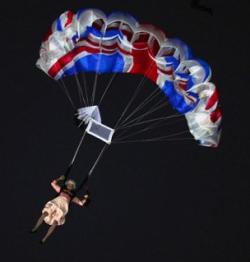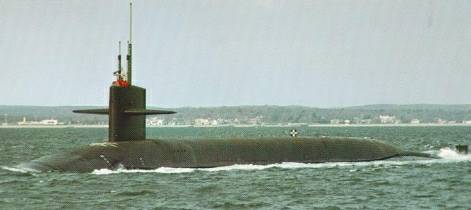 At long last, the debate on Islamism as politics, not Islam as religion, is out in the open. Two weeks ago, Jack Straw might have felt he was taking a risk when publishing his now notorious article on the Muslim veil. However, he was pushing at an open door. From across the political spectrum there is now common consent that the old multicultural emperor, before whom generation of politicians have made obeisance, is now a pitiful, naked sight. At long last, the debate on Islamism as politics, not Islam as religion, is out in the open. Two weeks ago, Jack Straw might have felt he was taking a risk when publishing his now notorious article on the Muslim veil. However, he was pushing at an open door. From across the political spectrum there is now common consent that the old multicultural emperor, before whom generation of politicians have made obeisance, is now a pitiful, naked sight.
The 10,000 Muslims in my constituency of Rotherham can only benefit from removing the dead hand of ideological Islamism allowing their faith to be respected and their children to flourish in a Britain that finally wakes up to what must be done. Despite the efforts of extremists to prevent any sort of rational debate about the place of Islam in Britain, it is at last happening.
| A fight-back is beginning to reclaim Britain from the grip of those who refuse to acknowledge the centrality of British values of tolerance, fair play and parliamentary democratic freedoms notably those of free speech and respect for all religions, but supremacy for none. |
A fight-back is beginning to reclaim Britain from the grip of those who refuse to acknowledge the centrality of British values of tolerance, fair play and parliamentary democratic freedoms notably those of free speech and respect for all religions, but supremacy for none. Voltaire noted this attribute of the English three centuries ago, when he wrote: "If there was just one religion in Britain there would be despotism. If two, there would be civil war. But as there are 30, they all live at peace with each other."
It is worth returning to Voltaire on this issue. The struggle is not between religion and secularism, nor between the West and Islam, and still less between Bush-Blair and the Taliban or Iraqi insurgents. It is the ideologisation an ugly word for an ugly thing of religion that needs confronting. Return to Voltaire who noted, "Neither Montaigne, Locke, Boyle, Spinoza, Hobbes, or Lord Shaftesbury lighted up the firebrand of discord in their countries; this has generally been the work of divines, who, being at first puffed up with the ambition of becoming chiefs of a sect, soon grew very desirous of being at the head of a party."
The row ignited by Jack Straw has, so to speak, ripped away the veil over the failure of British policy-makers since the 1980s to come to grips with growing ideological Islamism in our midst.
In David Blunkett's diaries, he refers to the arrest of the Finsbury Park radical Islamist imam, Abu Hamza, in January 2003. Mr Blunkett records: "We had been to-ing and fro-ing on this for months." For months! For years, every other politician in Europe had been complaining about the failure of Britain to act against Hamza and the other ideologues of hate who were turning young Muslim minds long before 9/11 or the Iraq conflict into cauldrons of hate against democracy, and some, tragically, into self-immolating killers of innocent men, women and children.
Where Blunkett and previous ministers failed to act, it has taken a young, devoutly religious Christian politician, in the form of Ruth Kelly, who knows the difference between private faith and public politics, to come forward and to speak en clair to organisations and ideologues who believed that their world view would and should overcome British values and traditions.
An all-party commission on anti-Semitism that I chaired reported recently. Our most worrying discovery was the complacency on many university campuses about harassment of Jewish students. Jew-baiting behaviour that would have had the Left outraged in the 1930s is now actively encouraged by an unholy alliance of the hard Left and Islamist fundamentalists, and the odious anti-Semites who have infiltrated some lecturers' unions. Ruth Kelly, whose fealty to her faith matches that of any deeply religious British Muslim, is right to make clear there are now limits which must not be overstepped.
As a Foreign Office minister, I tried to get Whitehall to take the issue seriously. I argued that diplomats who spoke relevant languages should go and talk, discuss and report back to ministers.
Chinese walls in Whitehall prevented effective inter-departmental co-operation. The Home Office, in addition to allowing Hamza to poison the minds of a generation, refused to return to France Rashid Ramda, who was wanted for questioning in connection with the 1995 Paris Metro bombings a foretaste of our own 7/7. I hated having to go on French television and waffle defensively at a policy of not extraditing this evil man. But the prevailing culture was to deal with religious leaders, not elected politicians. Whitehall sought the advice of friendly theologians from Cairo, or Muslim ideologues such as Tariq Ramadan. This denied political space to British citizens of Muslim faith, women as well as men.
Late in 2003, I made a routine speech to my constituency. It followed the murder of British and Turkish men and women at our consulate in Istanbul by Islamist terrorists. At the same time, a young South Yorkshire Muslim had gone to Israel and killed himself in a suicide bombing attack.
The two events led me to make a speech in which I said: "It is time for the elected and community leaders of British Muslims to make a choice: it is the democratic, rule of law, if you like the British or Turkish or American or European way based on political dialogue and non-violent protests or it is the way of the terrorists against which the whole democratic world is now uniting." I thought my remarks were banal. After 7/7, everyone used them.
But, three years ago, the chairman of the Commission for Racial Equality, Trevor Phillips wrote a whole page in the Observer denouncing me. The Foreign Office and Downing Street would not allow me to defend my position. It was an ugly, uncomfortable time, as no one in Whitehall or the media showed any support for efforts to get a debate going on issues that today rightly predominate. Red boxes are here today and gone tomorrow. But if a minister is to be dismissed for telling the truth, even if the telling of the truth is not perfectly timed, then this or any government is in trouble.
Islamist politics is now one of the most important issues for the future of democracy. Getting the right answers will define the world's future. All main parties, other than the odious BNP, rightly shun Islamophobia. British Muslims will be welcome at Eid parties in the Commons to celebrate the end of Ramadan. But we have to find answers to calls for censorship, to celebrations of jihadist terror, or a religiously ordained world view that denies equal rights for women or gays here and in Afghanistan.
Some difficult politics lies ahead. It is bizarre that neither David Cameron nor Sir Menzies Campbell have spoken. At some stage, the metro-populism of Notting Hill will have to engage with the worries of British citizens who understand a problem long before Whitehall gets it.
There is a new generation of British Muslims who want to engage in politics and reclaim the issues that concern their communities from religious-based outfits or those who see their task as importing foreign conflicts into domestic British politics.
They must be encouraged before it is too late. From Margaret Thatcher, until very recently Tony Blair, political leaders have been in denial. It is time to wake up.
Denis MacShane is Labour MP for Rotherham and worked at the Foreign Office as PPS and minister, 1997-2005 |
 Lord Coe, the chairman of London 2012, was accused of breaking a promise that unsold and unused corporate tickets would be given to the public, while Sir Menzies Campbell, an observer on the board of Games organisers Locog, described the situation as depressing.
Lord Coe, the chairman of London 2012, was accused of breaking a promise that unsold and unused corporate tickets would be given to the public, while Sir Menzies Campbell, an observer on the board of Games organisers Locog, described the situation as depressing.

 Tony Blair will promise today to cut by a fifth the operational nuclear warheads on Britain's Trident submarines, from 200 to 160, the Guardian understands. The cut is part of the prime minister's campaign to persuade MPs that the government must start work almost immediately on plans detailed in a white paper to build a replacement fleet.
Tony Blair will promise today to cut by a fifth the operational nuclear warheads on Britain's Trident submarines, from 200 to 160, the Guardian understands. The cut is part of the prime minister's campaign to persuade MPs that the government must start work almost immediately on plans detailed in a white paper to build a replacement fleet. At long last, the debate on Islamism as politics, not Islam as religion, is out in the open. Two weeks ago, Jack Straw might have felt he was taking a risk when publishing his now notorious article on the Muslim veil. However, he was pushing at an open door. From across the political spectrum there is now common consent that the old multicultural emperor, before whom generation of politicians have made obeisance, is now a pitiful, naked sight.
At long last, the debate on Islamism as politics, not Islam as religion, is out in the open. Two weeks ago, Jack Straw might have felt he was taking a risk when publishing his now notorious article on the Muslim veil. However, he was pushing at an open door. From across the political spectrum there is now common consent that the old multicultural emperor, before whom generation of politicians have made obeisance, is now a pitiful, naked sight. BOMBS destined to be used by Israel are being flown via Scotland only because the Irish government refused to allow them to land on its soil. Scotland on Sunday can reveal that after the conflict in Lebanon began three weeks ago, Ireland turned down a United States request for planes carrying 600lb so-called bunker busters to refuel at Shannon airport in Co Clare. As a result, cargo planes carrying the bombs, which the Israeli army is using in its offensive against the Hezbollah, are being flown via Prestwick airport in Ayrshire.
BOMBS destined to be used by Israel are being flown via Scotland only because the Irish government refused to allow them to land on its soil. Scotland on Sunday can reveal that after the conflict in Lebanon began three weeks ago, Ireland turned down a United States request for planes carrying 600lb so-called bunker busters to refuel at Shannon airport in Co Clare. As a result, cargo planes carrying the bombs, which the Israeli army is using in its offensive against the Hezbollah, are being flown via Prestwick airport in Ayrshire.
 US Secretary of State Condoleezza Rice will inflame the transatlantic row over America's alleged torture of terror suspects in secret jails by telling Foreign Secretary Jack Straw and other European officials to 'back off'.
US Secretary of State Condoleezza Rice will inflame the transatlantic row over America's alleged torture of terror suspects in secret jails by telling Foreign Secretary Jack Straw and other European officials to 'back off'.